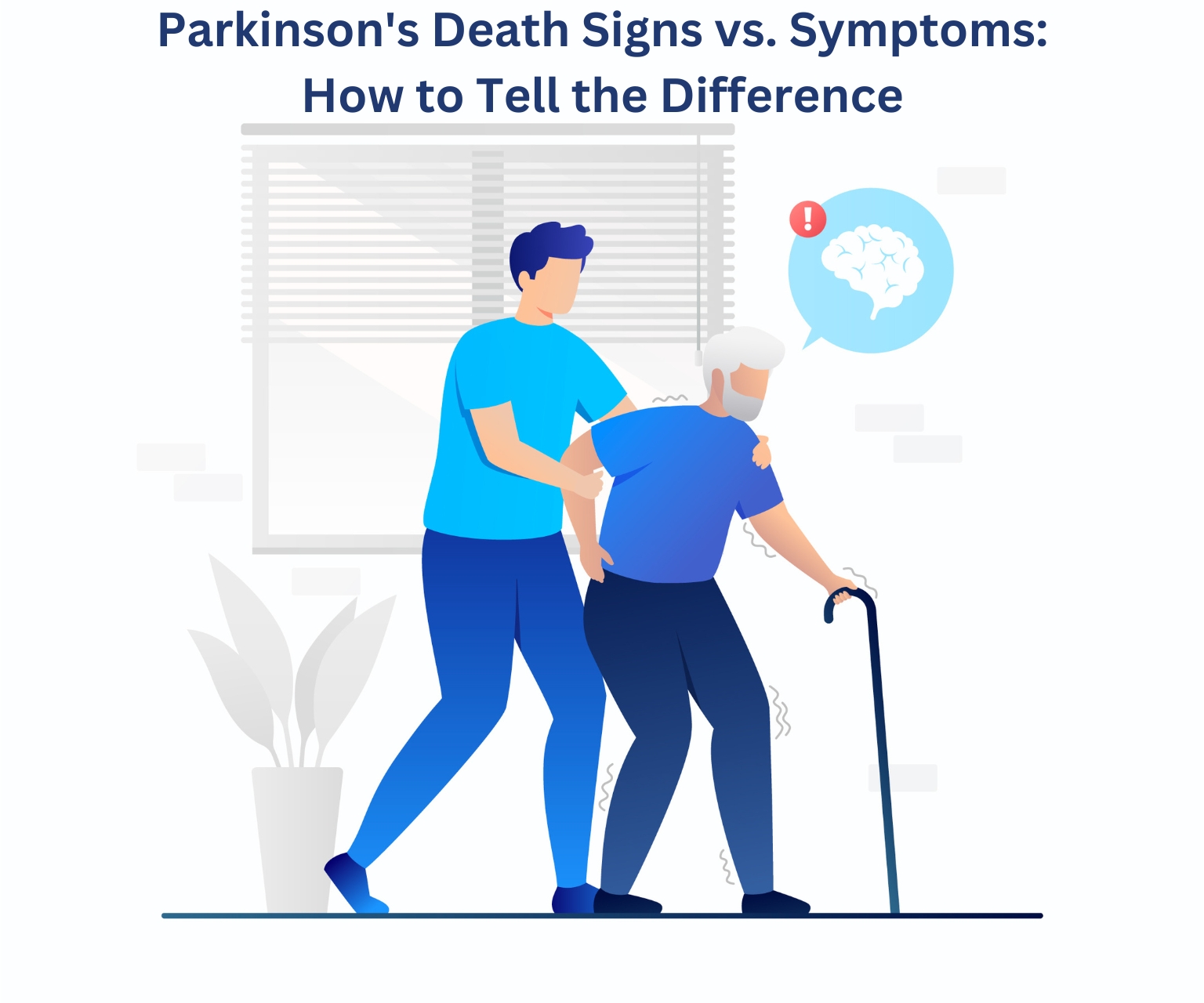Exploring What Are the Signs of End-of-Life Kidney Failure
Recognizing the signs of death from kidney failure early is crucial for patients with end-stage renal disease and their caregivers. It will help manage expectations and plan appropriate care together with hospice teams and hospice services tailored to renal disease. Healthcare professionals play a key role in diagnosing and managing end-of-life kidney symptoms. They also help family and friends make informed decisions about end-of-life care. All this ensures that the patient’s comfort stays at the same level until their passing. But what are the signs of dying from kidney failure? This article will provide all the answers to these burning questions.
What is End-Stage Renal Disease (ESRD)?
End-stage renal disease (ESRD) is the final phase of chronic kidney disease. It occurs when the kidneys can no longer perform their vital functions to meet the body’s needs. At this stage, the glomerular filtration rate (GFR) drops below 15 millilitres per minute. The kidneys become incapable of effectively maintaining their functions, which calls for immediate medical interventions such as dialysis or a kidney transplant to sustain life.
The progression to ESRD is gradual and often caused by long-term damage from diabetes, hypertension, or autoimmune diseases. As kidney function declines, toxins build up in the body, leading to a range of debilitating symptoms. Patients suffer from fatigue, nausea, swelling, and cognitive impairment.
What to Expect with End-Stage Renal Disease
As renal function deteriorates, patients may need dialysis more frequently, which usually takes up most of the care routine. The sessions may take place multiple times a week, several hours a day. As toxins build up in the body, patients start experiencing persistent itching, muscle cramps, and difficulty breathing. Experiencing kidney failure near death can be an overwhelming and distressing situation for both patients and their families, requiring immediate medical attention and compassionate care. Hospice teams are trained to manage these symptoms to provide comfort and comprehensive support.
Emotional and psychological support is also crucial at this stage. Patients are facing a terminal illness, so anxiety and depression are inevitable. Family caregivers, supported by hospice palliative care teams, must provide love, support, and daily care to their loved ones. This ensures that the patient’s quality of life remains as high as possible.
What are the Signs of Dying from Kidney Failure?
Stage 5 kidney disease death symptoms are:
- Swelling and water retention in the legs and feet.
- Loss of appetite, nausea, and vomiting.
- Mental disorders and confusion.
- Shortness of breath.
- Insomnia and other sleep issues.
The level of pain that people with end-of-life kidney failure feel can vary from person to person. On the other hand, issues like discomfort can be effectively managed with the help of medicines and complete hospice care services. The goal of these services is to take care of the patient’s physical, mental, and social health.
Symptoms of End-Stage Renal Failure Before Death
Understanding the kidney failure hospice timeline is essential for providing appropriate end-of-life care and ensuring patients and their families are prepared for the final stages of the disease, where several symptoms become more pronounced. Beyond the general symptoms of fatigue and nausea, blood in stool, kidney failure, and nosebleeds are also present. These symptoms indicate the body’s failing ability to regulate blood flow and filter toxins. End-stage renal failure symptoms before death also can be presented in confusion, decreased alertness, and even seizures. Gastrointestinal symptoms, including vomiting and a lack of appetite, are prevalent and cause massive weight loss and physical weakness.
Challenges in Dialysis and End-of-Life Care
Dialysis is a lifesaving treatment for patients with end-stage renal disease, but it’s hardly pleasant. The process is both physically and emotionally taxing, requiring frequent sessions that last several hours, during which a machine filters waste products and excess fluid from the blood. As kidney function declines, the symptoms managed by dialysis, such as fluid overload and toxin build-up, become more severe and harder to control. This escalation can lead to further complications, necessitating more intensive and frequent dialysis sessions.
What Happens When a Dialysis Patient Stops Urinating?
When a dialysis patient stops urinating, it indicates a near-total or total loss of kidney function, a condition known as anuria. This signals that the kidneys are no longer producing urine to remove waste from the body. Without some form of intervention, toxins and fluid will build up in the body, leading to life-threatening complications. Dialysis must be calibrated very carefully to remove fluids at a rate that avoids both dehydration and fluid overload, both of which can be dangerous. It requires meticulous planning and adjustment of dialysis parameters based on the body’s response to treatment.
The more pressing issue, however, is whether to continue or stop dialysis treatment completely. This decision is complex and involves the dialysis patient, their family and friends, healthcare providers, and the hospice team. They must consider the treatment goals and the patient’s quality of life and weigh potential benefits against the burdens.
Emotional and Spiritual Support through Hospice
Emotional and spiritual support is crucial in end-of-life care to ensure the mental health stability of the patients. Thankfully, hospice services address not just the physical symptoms of kidney disease but also the psychological and spiritual distress that patients and their families often experience.
Hospice care is specifically designed to support patients’ emotional well-being by ensuring they are not alone in their journey. A hospice team works together to support the patient, their family, and their friends. They provide a comforting presence, help alleviate fears and anxieties, offer guidance on complex healthcare decisions and show compassion in moments of weakness.
The spiritual care component of hospice is tailored to the patient’s personal beliefs and desires. Spiritual counselors help patients make peace with their situation, address unresolved issues, and connect with their spiritual or religious beliefs. This can be a source of great comfort not only for deeply spiritual individuals but also for anyone who needs emotional support.
Patients with renal disease who would like to receive hospice care must have a prognosis of six months or less to live if the disease follows its usual course. The patient’s primary physician assesses the progression of the disease and the difficulty in symptom management through conventional treatment.
Supporting the Family and Caregivers
Families and caregivers of end-stage renal disease patients also struggle. They play a vital role in patient care, so it’s crucial to provide them with both emotional and practical support. This will help them continue caring about loved ones without too much hassle or distress.
Caregivers often experience stress, anxiety, depression, and isolation. To address these issues, hospice teams offer emotional support through one-on-one counseling and support groups. These resources provide a safe space for families and caregivers to express their feelings, share experiences with others in similar situations, and learn coping strategies to manage emotional stress.
Caring for someone with kidney disease involves many daily tasks, mostly revolving around addressing their physical needs. Hospice services offer respite care, giving caregivers much-needed breaks to recharge and attend to their personal needs. This helps prevent caregiver burnout, ensuring they remain physically and emotionally capable of fulfilling their caregiving duties.
Additionally, hospice teams provide comprehensive education on the medical aspects of renal disease. Caregivers can learn how to manage symptoms and administer medications correctly. This knowledge makes them more capable of addressing medical issues and preventing complications caused by ill-advised care. This also helps them make informed decisions about treatment and care.
The Final Stages: What to Expect
The timeline of the final days differs in every individual and depends on one’s overall health, how fast the kidney disease is progressing, and other hidden or diagnosed medical conditions. What, then, are the signs of dying from kidney failure? During the final stage of kidney failure, patients usually become very weak and spend most of the day sleeping or resting. They also lose the ability to communicate as their energy levels fall.
The LifeChoice team includes healthcare professionals who are end-of-life care specialists to maximize comfort and manage end-of-life symptoms. By coordinating care with the patient’s primary physician, we will modify their care plans so that their pain and other distressing symptoms remain under control. LifeChoice teams provide all the required palliative care. Our professionals offer not only medical but also emotional and spiritual guidance to the patients and their families.
The final stages of renal disease can be overwhelming. With the proper support and education, the last days of a patient’s life can be as comfortable as possible. Recognizing what to anticipate and being able to identify symptoms early on with end-stage kidney failure will make your ability to care for your loved one during this stage of life easier, thus providing the highest possible quality of life during this most difficult time for caregivers.
FAQs
- How long does the kidney failure hospice timeline typically last?
The kidney failure hospice timeline varies depending on the patient’s overall health and other factors. Typically, when patients enter hospice care for kidney failure, they may have days to weeks remaining, but it can differ from person to person. - What happens during the final stages of kidney failure? During end-stage kidney failure, patients often experience severe symptoms such as extreme fatigue, nausea, confusion, and fluid retention. As the body shuts down, blood pressure drops and breathing may become laboured, signalling the final stages of life.
- When should someone with kidney failure consider hospice care?
Hospice care is often considered when treatments are no longer effective and the patient’s quality of life is significantly diminished. Patients with end-stage kidney failure may benefit from hospice care when symptoms like pain and discomfort become difficult to manage, and the focus shifts to comfort rather than cure. - How can hospice help in the final stages of kidney failure?
Hospice care provides comprehensive support for patients and their families during the kidney failure hospice timeline. This includes pain management, emotional support, and guidance for family members to ensure comfort and dignity during the final weeks or days of life.




Post Comments